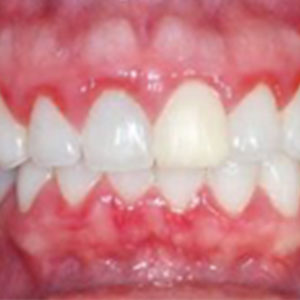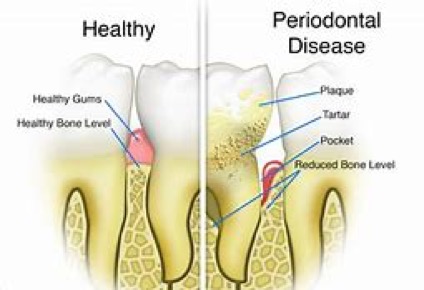
Many American adults suffer from gum disease – many don’t see the big deal with a little bleeding from their gums when brushing or flossing. The big deal is that gum disease is a bacterial infection that can cause problems in the mouth like tooth loss and can also contribute to serious systemic health problems like heart disease, stroke, and diabetes. http://www.perio.org
New research indicates that gum disease is caused by specific kinds of pathogens or “bad bacteria” that live in your mouth, not just tartar buildup. Plaque and tartar buildup can, of course, exacerbate the situation, but we must begin to treat the disease for what it really is. Gum disease is a bacterial infection that leaves an open wound in your mouth and should be treated as such. This open wound is a pathway for the bacteria to get into your system and cause all sorts of other problems in your body. One of the noticeable effects of gum infection in the mouth is bone loss in the area, reducing support for the teeth.
Some or all of these symptoms may be present depending on how long you have had the infection, your body’s defenses, and many other factors. Treating this infection depends on how advanced it is and our team will work with you to come up with a plan to eliminate and manage any effects. The good news is that with treatment many effects can be managed and you can be brought back to health. Many of the effects on other diseases can also be changed – for example, risk for unwanted cardiac events can decrease after gum infection treatment.
During your initial exam, your gum health will be evaluated to determine if you need more individualized treatment beyond a “routine cleaning” in order to obtain optimal oral health.

